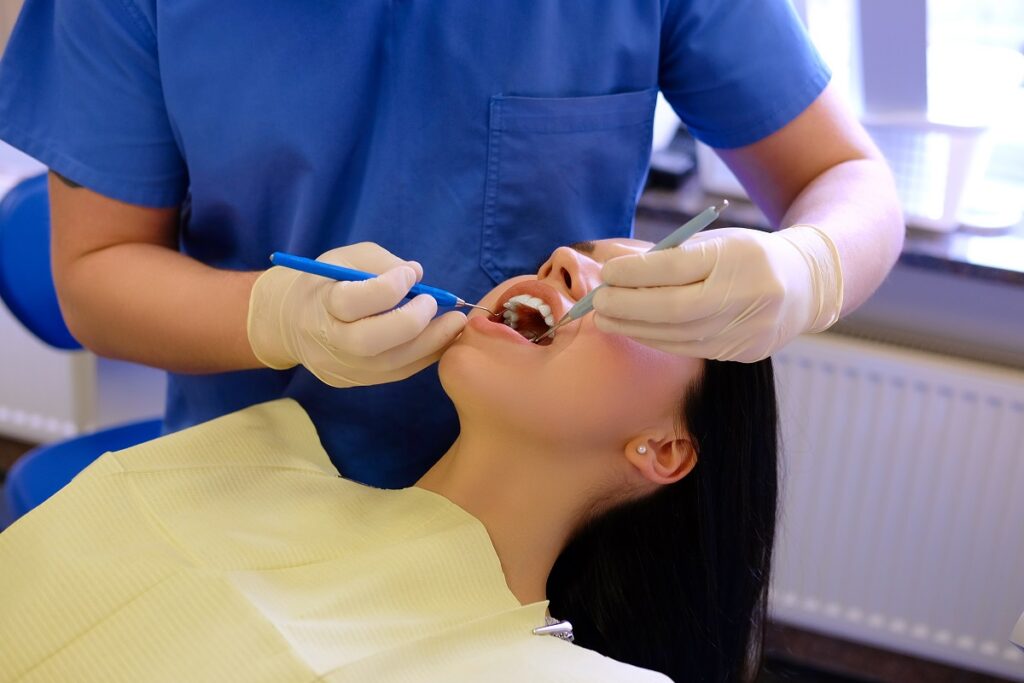Introduction
Definition of Wisdom Teeth
Wisdom teeth, also known as third molars, are the last set of teeth to emerge in the human mouth. Typically appearing between the ages of 17 and 25, these teeth can often cause significant dental issues due to their late development and potential lack of space in the jaw.
Importance of Wisdom Teeth Removal
Wisdom teeth removal is a common dental procedure aimed at preventing or resolving problems such as pain, infection, and misalignment of other teeth. Understanding the process and knowing what to expect can alleviate anxiety and ensure better outcomes.
Overview of the Surgical Procedure
Wisdom teeth removal surgery involves the extraction of one or more third molars through a surgical process performed by a dentist or oral surgeon. The procedure can vary in complexity depending on the position and condition of the teeth.
Relevance and Popularity of the Topic
Given the prevalence of wisdom teeth issues and the routine nature of their removal, this topic is highly relevant. Many individuals undergo this procedure, making it essential to disseminate accurate information about what to expect and how to prepare.
Understanding Wisdom Teeth
What Are Wisdom Teeth?
Wisdom teeth are the third set of molars located at the back of the mouth. They are the last to emerge, typically during late adolescence or early adulthood.
Common Age for Wisdom Teeth Emergence
Wisdom teeth usually appear between the ages of 17 and 25. However, the timing can vary, and some people may never develop them.
Number and Position of Wisdom Teeth
Most people have four wisdom teeth, one in each corner of the mouth. However, it is possible to have fewer, more, or none at all.
Symptoms and Signs of Problematic Wisdom Teeth
Pain and Swelling
One of the most common symptoms of problematic wisdom teeth is pain and swelling around the affected area. This discomfort can indicate impaction or infection.
Gum Infection
Infection of the gums surrounding the wisdom teeth can lead to redness, swelling, and pain. This condition, known as pericoronitis, often requires prompt treatment.
Difficulty Opening Mouth
Impacted wisdom teeth can cause difficulty in opening the mouth fully, a condition known as trismus. This can interfere with eating and speaking.
Impact on Other Teeth
Wisdom teeth can exert pressure on adjacent teeth, leading to misalignment and overcrowding. This can disrupt the overall dental structure.
Bad Breath
Chronic bad breath or an unpleasant taste in the mouth can be a sign of infection or decay associated with wisdom teeth.
Causes and Risk Factors
Genetic Factors
Genetics play a significant role in the development and emergence of wisdom teeth. Family history can influence the likelihood of having problematic wisdom teeth.
Dietary Influences
Modern diets, which often lack the roughage found in ancestral diets, can contribute to smaller jaw sizes, leading to insufficient space for wisdom teeth.
Lack of Space in the Jaw
Insufficient space in the jaw is a primary cause of wisdom teeth impaction. This lack of space can prevent the teeth from emerging properly.
Impact of Modern Diets
Modern, softer diets reduce the natural wear and tear on teeth, leading to smaller jaws and more frequent impaction of wisdom teeth.
Diagnosis and Tests
Dental Examination
A thorough dental examination is the first step in diagnosing wisdom teeth issues. Dentists look for signs of impaction, infection, or crowding.
X-rays and Imaging
X-rays provide a detailed view of the position and condition of wisdom teeth, helping dentists plan the best course of action.
Assessment by an Oral Surgeon
In complex cases, an oral surgeon’s assessment is necessary. They can evaluate the risks and recommend surgical removal if needed.
Signs Indicating the Need for Removal
Indicators for removal include pain, infection, damage to adjacent teeth, and potential cysts or tumors associated with wisdom teeth.
Types of Wisdom Teeth Impaction
Soft Tissue Impaction
Soft tissue impaction occurs when the tooth has emerged through the gum but not fully. This can lead to partial exposure and potential infection.
Partial Bony Impaction
In partial bony impaction, the tooth is partially encased in the jawbone, leading to partial eruption and associated problems.
Complete Bony Impaction
Complete bony impaction is when the tooth remains entirely within the jawbone, requiring surgical intervention for removal.
Symptoms of Each Type
Each type of impaction presents different symptoms, from mild discomfort to severe pain and infection, necessitating different treatment approaches.
Treatment Options
Non-Surgical Approaches
Non-surgical treatments include pain management and antibiotics for infections. These are often temporary solutions before surgical removal.
Surgical Removal
Surgical removal is the most definitive treatment for problematic wisdom teeth. It involves extracting the teeth under local or general anesthesia.
Medications for Pain and Infection
Post-surgery, medications such as painkillers and antibiotics are prescribed to manage pain and prevent infection.
Post-Surgery Care
Proper post-surgery care, including following dietary recommendations and maintaining oral hygiene, is crucial for a smooth recovery.
Preparing for Surgery
Pre-Surgery Consultation
A pre-surgery consultation with the dentist or oral surgeon includes a thorough examination and discussion of the procedure.
Medical History and Assessment
Patients’ medical histories are reviewed to identify any conditions that could affect the surgery or recovery.
Instructions for the Day of Surgery
Patients receive specific instructions for the day of surgery, including fasting and medication guidelines, to ensure safety and efficacy.
Fasting and Medication Guidelines
Fasting is often required before surgery, and patients may need to adjust their medication schedules under the guidance of their surgeon.
The Surgical Procedure
Overview of the Surgery
Wisdom teeth removal surgery involves making incisions in the gum, removing bone if necessary, and extracting the teeth.
Types of Anesthesia Used
Anesthesia options include local anesthesia, sedation, and general anesthesia, depending on the complexity of the case and patient preference.
Step-by-Step Surgical Process
The surgical process includes numbing the area, making incisions, removing the teeth, and suturing the site. The procedure typically takes 45 minutes to an hour.
Duration of the Surgery
The duration of the surgery varies based on the number of teeth being removed and the complexity of the impaction but usually lasts between 45 minutes to an hour.
Post-Surgery Recovery
Immediate Post-Surgery Care
Immediate care involves managing bleeding, applying ice packs, and resting to facilitate initial healing.
Managing Pain and Swelling
Pain and swelling are managed with prescribed medications and home remedies such as ice packs and saltwater rinses.
Dietary Recommendations
Soft foods and liquids are recommended post-surgery to avoid irritating the surgical site. Gradual reintroduction of regular foods follows as healing progresses.
Signs of Complications
Patients should watch for signs of complications such as excessive bleeding, severe pain, fever, or swelling, and seek medical attention if they occur.
Preventive Measures
Regular Dental Check-ups
Regular check-ups help in the early detection and management of potential wisdom teeth issues, preventing severe complications.
Early Detection and Monitoring
Early detection through regular dental visits allows for timely intervention, often preventing the need for complex surgical procedures.
Oral Hygiene Practices
Maintaining good oral hygiene practices, such as regular brushing and flossing, helps prevent infections and other dental issues related to wisdom teeth.
Diet and Lifestyle Adjustments
Adopting a balanced diet and healthy lifestyle can contribute to overall dental health and reduce the risk of wisdom teeth problems.
Personal Stories and Case Studies
Real-Life Experiences of Patients
Sharing real-life experiences helps others understand what to expect from wisdom teeth removal surgery and how to prepare for it.
Success Stories
Highlighting success stories of smooth recoveries can provide reassurance and encourage proactive dental care.
Lessons Learned from Complications
Learning from complications and how they were managed offers valuable insights for both patients and healthcare providers.
Expert Insights
Quotes from Oral Surgeons
Expert quotes provide professional perspectives on the importance and benefits of wisdom teeth removal.
Advice on Managing Anxiety
Tips and strategies from professionals on managing pre-surgery anxiety can help patients approach the procedure with confidence.
Tips for a Smooth Recovery
Expert advice on post-surgery care ensures a smoother and quicker recovery, minimizing discomfort and complications.
(FAQs)
Is Wisdom Teeth Removal Necessary for Everyone?
Not everyone needs their wisdom teeth removed. The necessity depends on individual dental health, potential complications, and professional recommendations.
How Painful is the Surgery?
The surgery itself is painless due to anesthesia. Post-surgery discomfort varies but is manageable with prescribed medications and care.
What is the Best Age for Surgery?
The best age for wisdom teeth removal is typically between 17 and 25, as younger patients tend to recover faster and with fewer complications.
How Long Does Recovery Take?
Recovery time varies, but most patients can return to normal activities within a week, with complete healing taking several weeks.
What Foods Should Be Avoided Post-Surgery?
Post-surgery, patients should avoid hard, crunchy, spicy, and hot foods. Soft foods and liquids are recommended during the initial recovery phase.
Conclusion
Summary of Key Points
Wisdom teeth removal is a common and often necessary procedure to prevent dental complications. Understanding the process, preparation, and recovery is crucial for a positive outcome.
Importance of Professional Consultation
Professional consultation ensures personalized care and informed decision-making regarding wisdom teeth removal.
Encouragement for Proactive Dental Care
Proactive dental care, including regular check-ups and good oral hygiene, is essential in managing wisdom teeth health and overall dental wellness.
For More interesting content Visit Almukhbir daily.






